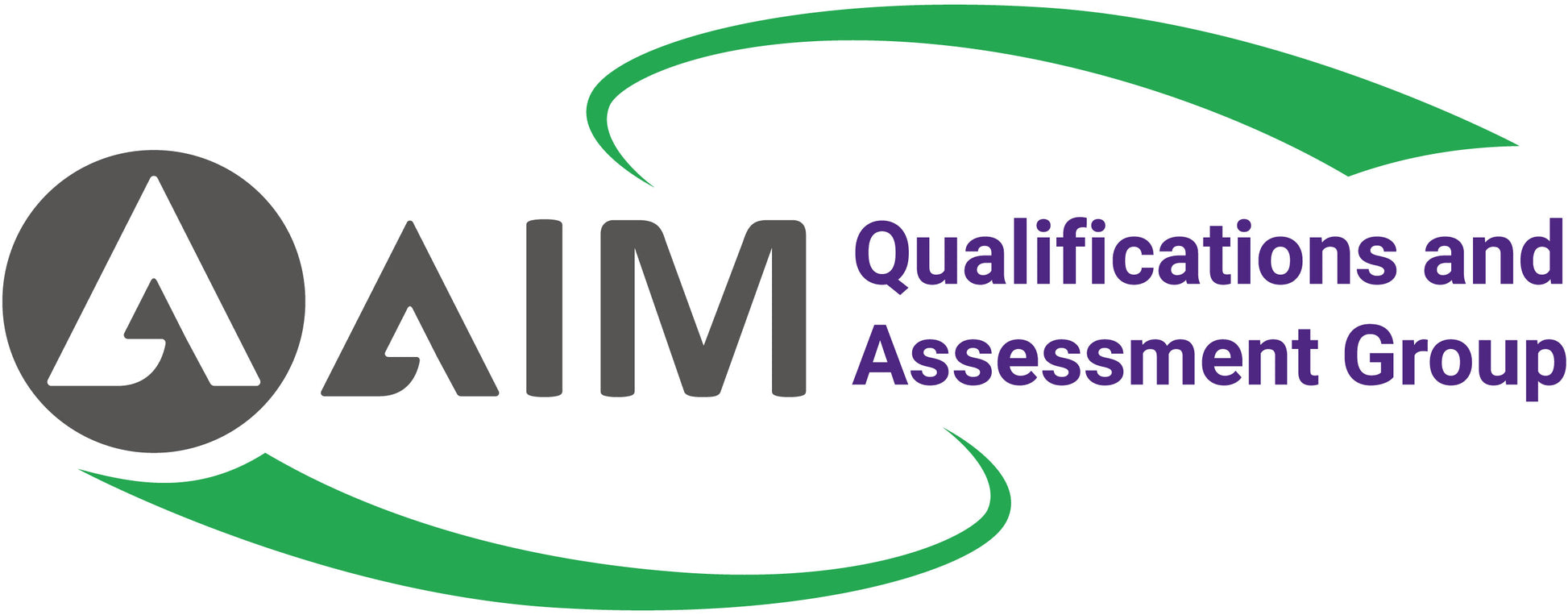AccessCoursesOnline
Access to Higher Education Diploma (Sports Science)
Access to Higher Education Diploma (Sports Science)
Couldn't load pickup availability
Course Outline
Course Outline
The Access to HE Diploma (Sport Science) is a Level 3 qualification awarded by AIM Qualifications and Assessment Group and recognised by universities across the UK.
The course combines:
Scientific knowledge in sport, exercise, physiology, nutrition, and psychology.
Practical skills in sport performance, injury management, and fitness testing.
Research and study skills to prepare you for independent academic work at university.
This mix of theory, practice, and skills makes it an ideal preparation for degrees in Sport Science, Exercise Physiology, Coaching, Physiotherapy, or Sports Studies.
Modules
Modules
Academic Study Techniques (6 credits) Develop essential academic skills for higher education success. Learn how to structure essays, take effective notes, reference correctly, and manage your workload. This unit helps you build the confidence to approach university-level study.
Preparing for a Higher Education Admission Interview (3 credits)
Gain confidence for university applications and interviews. You’ll practise how to present yourself, answer questions effectively, and highlight your motivation and strengths.Develop Critical Thinking (3 credits)
Learn how to analyse arguments, question assumptions, and evaluate evidence. This unit builds problem-solving and reasoning skills that are vital in science and sport-related study.Introduction to Anatomy (3 credits)
Build a foundation in human anatomy, focusing on the musculoskeletal and cardiovascular systems. You’ll learn how the structure of the body relates to movement and performance in sport and exercise.Biomechanics (6 credits)
Study the mechanical principles that underpin human movement. You’ll learn how forces, motion, and levers affect performance, injury prevention, and training design. This unit links theory with practical applications in sport and exercise.Exercise Physiology (6 credits)
Explore how the body responds to exercise. Topics include energy systems, cardiovascular and respiratory function, muscular performance, and adaptations to training.Fitness Testing for Sport and Exercise (3 credits)
Learn how to design and deliver fitness tests to measure components such as strength, endurance, flexibility, and speed. You’ll interpret results and consider how testing informs training programmes.Sport Nutrition (6 credits)
Examine the role of diet and nutrition in supporting performance, recovery, and health. This unit covers macronutrients, hydration, supplements, and how nutrition strategies vary between athletes and populations.Sports Injuries (3 credits)
Understand the causes, treatment, and prevention of common sports injuries. You’ll study injury mechanisms, rehabilitation, and how training programmes can reduce injury risk.Sport Psychology (3 credits)
Explore the mental factors that influence performance in sport and exercise. Topics include motivation, confidence, stress, and teamwork. You’ll also consider psychological strategies to enhance performance.Training and Fitness in Sport and Exercise (3 credits)
Learn how to plan and implement training programmes for different goals, from general fitness to elite performance. You’ll consider principles of training, progression, and monitoring outcomes.Sports Research Project (6 credits)
Undertake your own independent research project on a sport science topic of your choice. You’ll design your study, collect and analyse data, and present your findings in a structured academic format — developing vital skills for university.Practical Individual Sport Performance (3 credits)
Develop skills in an individual sport, focusing on performance, technique, and evaluation. This unit helps you apply theory to practice by analysing your own development.Practical Team Sport Performance (3 credits)
Gain experience in team-based sport. You’ll focus on communication, teamwork, tactics, and how individuals contribute to overall team performance.Current Issues in Sport (3 credits)
Examine contemporary issues such as doping, equality, technology in sport, or the role of sport in society. This unit encourages debate and critical reflection on the challenges facing modern sport.
Enrolment Requirements
Enrolment Requirements
There are no formal entry requirements. However, learners are normally expected to be working at:
Level 2 in English
Level 2 in Mathematics
At Access Courses Online, we provide advice and guidance before enrolment to ensure you are ready to succeed.
Assessments
Assessments
Assessment is through coursework rather than exams. Tasks may include:
Essays and written reports
Research projects
Case studies
Presentations
Practical assessments
To achieve the diploma, you must complete 60 credits:
45 graded credits at Level 3 (graded Pass, Merit, or Distinction).
15 ungraded credits at Level 2 or 3.
Your work will be internally assessed and externally moderated by AIM to ensure fairness and quality.
Qualification
Qualification
On successful completion you will receive the QAA-recognised Access to Higher Education Diploma (Sport Science), Level 3 (OFQUAL Ref: 400/1547/6).
The diploma is awarded by AIM Qualifications and Assessment Group, regulated by Ofqual, the QAA, and Qualifications Wales.
It is accepted by universities across the UK as an entry qualification for sport, exercise, and health-related degrees.
Careers
Careers
This diploma can lead to university study in areas such as:
Sport and Exercise Science
Coaching Science
Physiotherapy (subject to university entry requirements)
Strength and Conditioning
Sports Studies
Public Health and Exercise Promotion
With a degree, potential careers include:
- Sport Scientist – analysing performance and advising athletes on training and recovery.
- Exercise Physiologist – supporting clinical populations with exercise-based rehabilitation.
- Sports Coach or Strength & Conditioning Specialist – training individuals or teams to reach peak performance.
- Physiotherapist – helping patients recover from injury and regain movement.
- Performance Analyst – using data and video technology to improve sport performance.
- Sport Psychologist – supporting athletes with motivation, focus, and mental wellbeing.
- Fitness Professional or Personal Trainer – promoting health and fitness in the wider community.
This diploma gives you the academic preparation and confidence to take the next step towards a career in the dynamic and rewarding world of sport and exercise science.
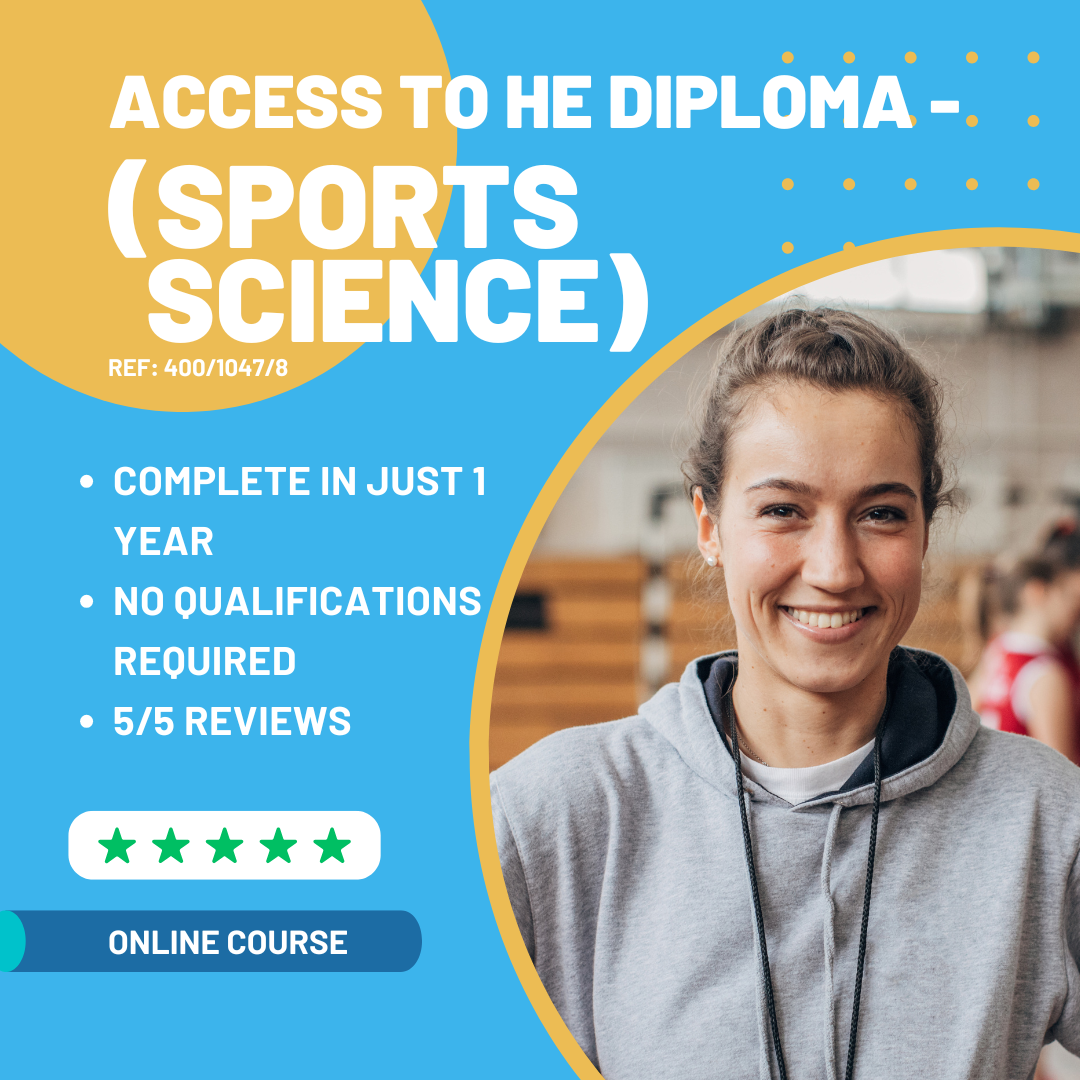
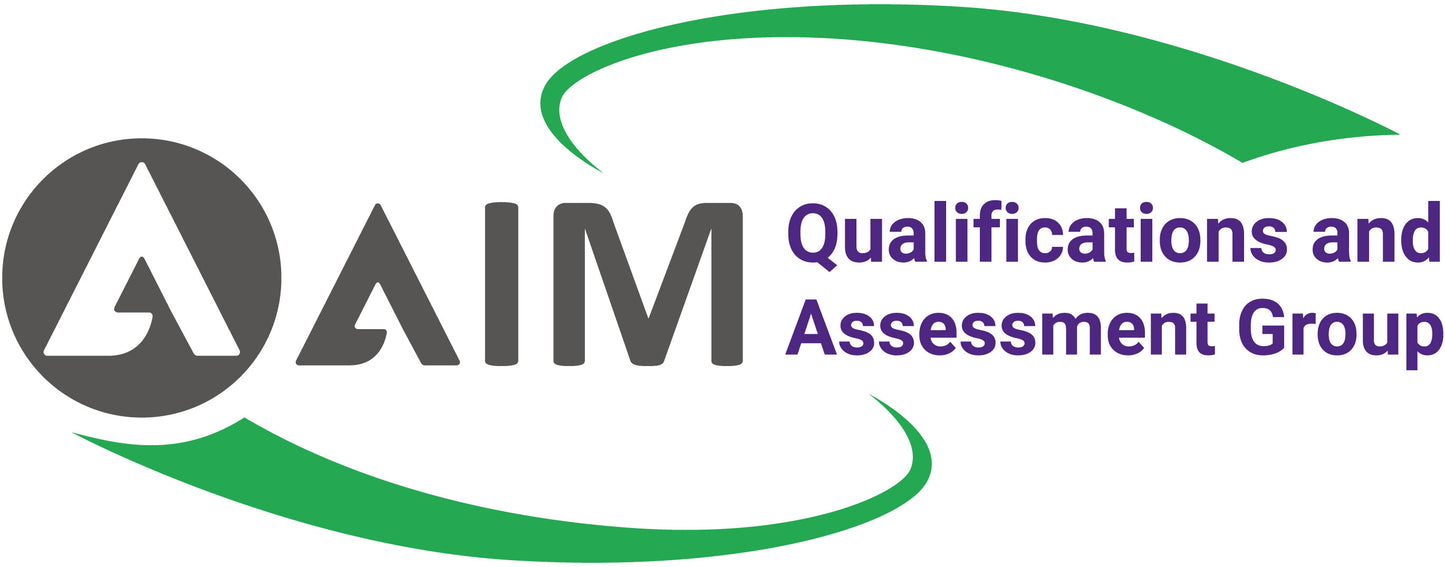

Our Guarantees
-
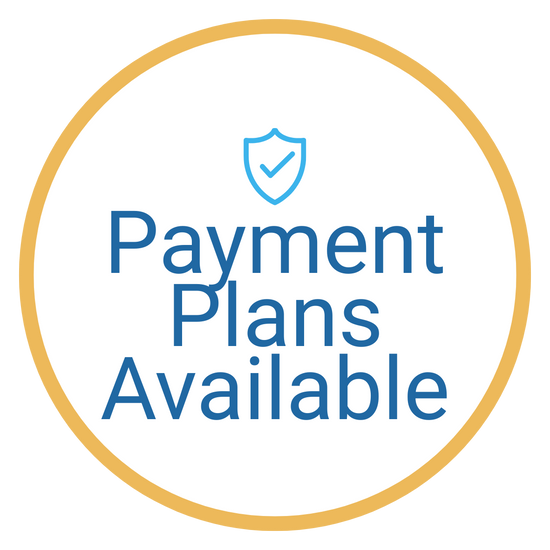
Affordable Learning
We offer flexible payment plans to make learning more accessible and affordable. Spread the cost of your course over manageable monthly payments, so you can focus on achieving your goals without financial stress.
-
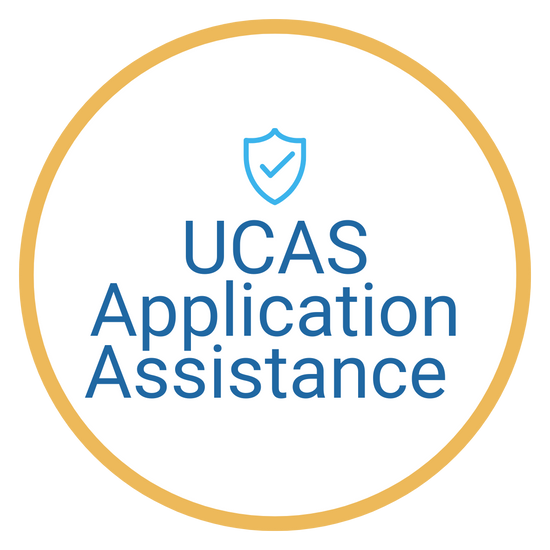
Application Support
We provide UCAS application support to help you navigate the university admissions process with confidence. From personal statement guidance to application tips, we’re here to support your journey to higher education.
-
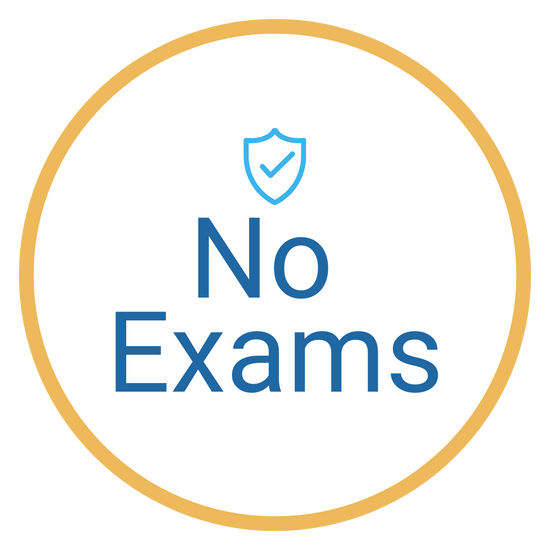
Exam Free Learning
Our courses are completely exam free. Instead of exams, you'll complete assignments and coursework designed to develop your knowledge and skills in a supportive and flexible learning environment.
Meet your expert friendly tutor
FAQs
Sports Science
Who is this course suitable for?
It’s ideal for anyone with an interest in sports, exercise, and health who wants to pursue a career in the sports science or fitness industry. Many learners are adults returning to education, career changers, or those looking to move into higher education after time away from study.
Do I need to have studied science before?
No — you don’t need formal qualifications in science, but an interest in biology, anatomy, and physiology will help. Tutors provide support to help you build confidence in the scientific aspects of the course.
Can I progress straight to university after this diploma?
Yes — the diploma is designed as a direct pathway to higher education. Universities recognise it as an equivalent to A-Levels, but it’s always best to check entry requirements for your chosen course.
Which university courses can I apply for?
Popular progression routes include:
· BSc (Hons) Sports Science
· BSc (Hons) Exercise Science
· BSc (Hons) Physiotherapy
· BSc (Hons) Sports Coaching & Development
· BSc (Hons) Strength and Conditioning
· BSc (Hons) Physical Education
· BSc (Hons) Nutrition and Exercise Science
Do I need practical experience in sport before starting?
It isn’t essential, but any practical experience — such as coaching, volunteering in sports clubs, or working in fitness — will help you apply your learning and strengthen university applications.
Tutoring
Who will be my Tutor?
We have professionals that are current in their practice of their chosen fields to support you. For example, you will be able to take directly to a Midwife/Nurse and get guidance and support directly from these professionals as you complete your course.
This is on top of a Faculty Leader in Science who has worked as a Science Teacher for more than 10 years.
Will I get some 1:1 support?
Yes! We help our students personally navigate their career options with online video calls and messenger chats.
We provide 1-1 specialist support to you when you need it.
Working in partnership with you, we will provide a personal service of meeting individual educational needs and career options.
Experience
Do I need to be ‘good’ at science?
You experience of science at school will likely be in an exam-based system that places high importance on being able to remember knowledge and ‘perform’ under exam conditions. This course is completely different, instead of covering vast discipline of science this course focussing on the key foundation knowledge that you’ll need in the next step of your learning journey. Teaching difficult concepts is our expertise, we will meet you where you are and get you where you need to be. By the end of the course, you’ll love science and have produced some useful learning resources to take you into your next stages of study.
I’m anxious about sitting exams, will I have to sit exams either face-to-face or online?
This course is completely online, and you’ll be glad to hear that there are no exams. The course leader will assess your understanding and knowledge of the subject but setting you assessments with clear criteria and assessment descriptors. You will submit your assignment for grading, either ‘pass’, ‘merit’ or ‘distinction’.
I’m nervous to present or talk to the group online, will I be forced to do this?
We will meet you where you are, if you want to develop this skill ready for university then we can arrange smaller group sessions or one-to-one sessions to support you, or you can choose an alternative format for your presentation. We want you to feel comfortable and supported on this course.
University
Will I have support applying for university?
Absolutely, we will hold your hand every step of the way, you can talk to us about course choices, we’ll help proofread your personal statement, provide references. As promised, we will get you to university.
I haven’t decided which exact route I’d like to take within the profession, does it matter?
No, not at all, we’ll introduce you to a number of different professionals within the health services so you can hear about their journey, experience and careers.
Lessons
Will I have to do practical experiments at home?
The investigation skills unit is based around a practical investigation of red peppers. The equipment that you’ll need is limited to things you’d find in your kitchen but you don’t need to carry out the investigation yourself if you don’t want to as your course leader will demonstrate it.
What are the assignments like?
We set a variety of assignments that will set you up with skills that will be useful in your future studying and career. We encourage essay writing with referencing, but don’t worry, we’ll show you how! We also set presentations, video tasks, leaflet and poster design and we show you how to use great free tools like Canva to make it super easy.
Do I have to attend live lessons and switch my camera on?
No, not at all. Many of our students are busy people working shifts and managing several commitments. You can watch the session recordings and then arrange a time to meet with your tutor to ask any questions or get further support. As for the camera, switch it on if you feel comfortable, don’t worry if not. We’ve created a culture of supportive and collaborative students in our online community, but all approaches are respected and accepted. Do what makes you feel comfortable.


